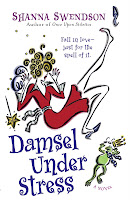STATUS: TGIF. Fun weekend planned as the in-laws (whom I adore) are in town for Father’s Day. Coors Field here we come.
What’s playing on the iPod right now? 50 WAYS TO LEAVE YOUR LOVER by Simon & Garfunkel
I love the memoir. I could talk about this genre for weeks but I imagine some blog readers are thinking, “move on already.”
Seriously though, I read a lot of recently published memoirs on my own, for fun, because I just love that thrilling inside look into another person’s life. If I found more “just blow me away” ones, I would take them on. So I’m going to continue talking about this genre until I’ve exhausted all rant-worthy topics associated with it (and don’t worry, my arsenal is starting to run low).
So the above title to this blog entry is yet another kiss-of-death-otherwise-known-as-an-automatic-NO-from-an-agent for any aspiring memoirist. I cannot count the number of times I’ve chatted with a writer in person who has finished a memoir but when pitching the project to me will often say, “I wrote it as a memoir but it could be published as a novel instead.”
The answer to that is no it can’t.
And yes, I’m going to tell you why because this misconception is definitely a rant-worthy topic.
Although a memoir often shares certain similarities to a novel (as in there are scenes, dialogue, development of characters, and sometimes world-building) a memoir is not the same as a novel. They are two, distinctly different creative processes in how they are crafted and written.
So an already written memoir can’t be “published” as a novel or even vice-versa. It’s like saying my nonfiction self-help book can double as a novel. These are two wholly different entities. Apples and Oranges (James Frey, non-withstanding, but even A Million Little Pieces would have to be redone completely to make it stand as a novel because the crafting of a novel is not the same as the crafting of a memoir). Repeat after me: they are not interchangeable.
Now, I’m not talking about writers who have yet to begin the writing process and are wondering if they should simply take the real-life experience and use that as inspiration for writing a novel. That’s a different ball game altogether (but I also want to point out that such a direction has a whole different set of pitfalls). The key words here are “use it as inspiration.” Let’s just say when writers try to take a real life event and fictionalize it, something gets lost in the translation because the writers get too attached to what “actually happened” versus writing an original scene with developing characters and so on. Usually, but not always, the writing of this “novel” is just terrible because the writer doesn’t have any distance to the material nor are they using the elements of writing good fiction to create it.
But as I said, that’s actually a whole other blog entry. A memoir is a memoir—not a novel. A novel is a novel and can’t easily be “revised” into a memoir.
So don’t approach me with, “I’ve written a memoir but if it would be better, you could submit and publish it as a novel instead.”

